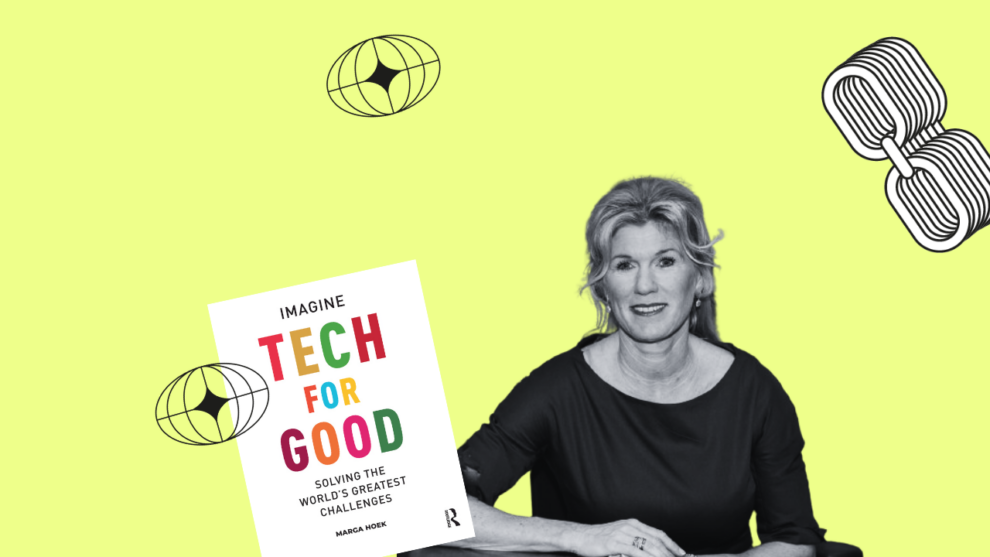We thus need policies and regulations that address new challenges, risks and threats, including privacy and security.
The emergence of technology governance from both industry and the public sector is a positive signal. Recent examples include industry-led efforts such as Global Digital Finance’s cryptocurrency code of conduct, or the Cybersecurity Tech Accord, government-led multilateral efforts such as the EU’s General Data Protection Regulation (GDPR), the G20 AI Principles, and the creation of the public-private Global Partnership on AI. More recently at the UK’s AI Safety Summit in November 2023, 28 countries including the US, UK and China, alongside the European Union, signed the Bletchley Declaration, a world-first global agreement to ensure the safety of AI.
Businesses, along with other ecosystem partners, have an essential role to play in helping governments develop effective regulations that can steer the impact of advanced technologies in a positive direction. Ethics are a crucial base on which our actions, systems, regulations, and policies must rest. Not self-interest, but collective interests, will engage everyone in this forward movement.
The need for more trust in technology
Trust in technologies’ intentions and impacts, and trust in the way this power will be used, fell to an all-time low in 2021. Many stakeholders favor tighter regulations on tech companies to make sure technologies are used for good. Tech companies indeed have an extremely powerful influence, and according to many, they are too powerful. Pew Research Center recently found that in the US, 56% of Americans think major technology companies should be regulated more than they are now, and 68% believe these companies have too much authority and influence over the economy. Many people are extremely worried about privacy, fake news, cybercrime, and more – especially in home devices.
A steady stream of controversies has dominated the conversation over how tech companies collect, manage, process, and share massive amounts of data. Even with a commitment to privacy and governance, the executives and founders of these companies have not convinced people that surveillance is not an omnipresent threat to their basic rights and freedoms.
Mistrust of governments and corporations causes people to take pause and reconsider how much faith they should put in both leaders and services directing these quickly evolving technologies. More threatening instances are emerging, exemplifying people’s trepidation. Even in the city of San Francisco – with a tech economy where high levels of enthusiasm for digital infiltration may be expected – facial recognition services are stringently controlled to “regulate the excesses of technology.”
CASE STUDY: Blockchain
Among innovative technologies, blockchain has the unique potential to establish new foundations for global economic and social systems. Blockchain shows great promise to become a truly disruptive technology that enables the sustainable development of new business models. As defined by the European Commission, Blockchain is “a technology that allows people and organizations to reach agreement on and permanently record transactions and information in a transparent way without a central authority.” More specifically, it can be described as a public ledger consisting of all transactions across a peer-to-peer network.
Companies and processes across industries can employ blockchain to enhance their business models. It can serve as a tool to execute and record transactions and track ownership for assets that change hands several times before settlement. Business executives report that not only is blockchain a necessity for solving some of a company’s most pressing problems, but it also has the potential to stimulate improvement over other methods. The tech can enormously reduce paper consumption by securely and permanently recording continuously retrievable data on a base level. Monitoring the supply chain through blockchain technology makes it possible to identify inferior products earlier in the process. Product recalls and new products can thus be reduced. The entire business world can benefit from more trusting, transparent, and direct relationships catalyzed by sustainable blockchain solutions.
Although blockchain presents many exciting solutions, advanced ledger tech has some possible downsides and risks to consider. Blockchain is a relatively untested technology in widespread application and presents some sustainability challenges in a rapidly changing world. Beyond its potential beneficial impact across public and private sectors, blockchain has also garnered scepticism related to its scalability and the high-energy use of early platforms. Companies employing this tech as a model for sustainable business must simultaneously be critical of the controversial aspects and how to address them.
This innovation needs sufficient monitoring for governance and user protection. Guarding against undesirable outcomes will be necessary for individuals, companies, organizations, and societies at large. With this in mind, there has been encouraging momentum towards defining and self-regulating user blockchain protection, such as the Global Digital Finance Code and the WEF Global Blockchain Council’s Presidio Principles.
Blockchain is still a nascent technology despite its vast, exciting potential. Regulatory uncertainty, immature infrastructure, technological limitations, and risks constrain the tech. Governments and policymakers may be cautious about supporting the maturation of blockchain while they create coherent regulatory frameworks. Several countries worldwide, like the US, Malta, and Belarus, have stated the need for instituted blockchain regulations. All these potential risks, downsides, and challenges are important considerations when addressing the complexities of blockchain’s consumer protection, infrastructure capabilities, and its influence on politics and cultural norms. Resolving these ensures that the technology will be able to meaningfully contribute to sustainable development aims.
Regulating technology for a better future
Businesses and their leaders will play a central role in harnessing the power of technology to create a better future for all. But we still have a long way to go to ensure tech is used for good.
Regulatory boundaries and protections must be put in place to prevent fraud or misuse that could further damage trust in technology. But regulations shouldn’t impede progress. They should adopt a proactive stance, aiming to create a positive impact on society rather than merely avoiding harm.
Building momentum backed by bold commitments and ethical intents directs tech toward addressing global challenges that are centred around a strong moral compass. Let’s steer innovation responsibly.
Source: Maddyness










